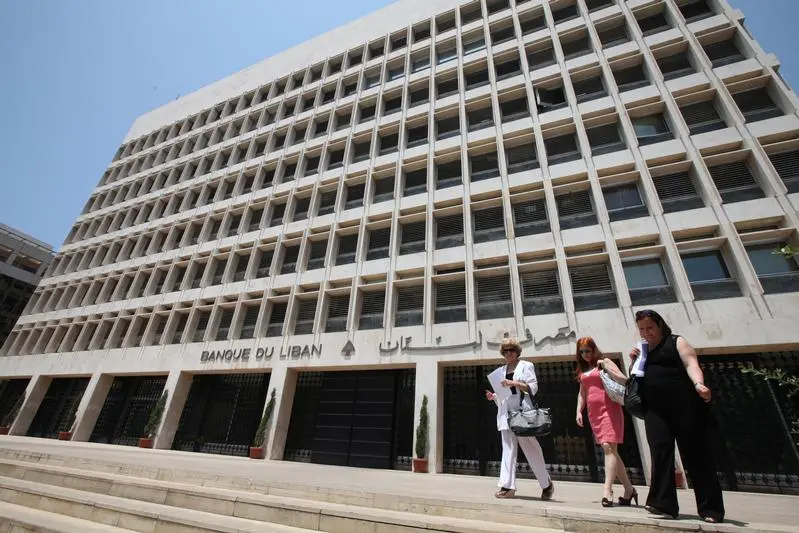PHOTO
By Laila Bassam
BEIRUT, May 20 (Reuters) - A Lebanese charity network run by a Shi'ite Muslim cleric said it had been unfairly caught up in new U.S. financial sanctions against Hezbollah, accusing Lebanese banks of applying the restrictions too widely.
The U.S. act passed in December threatens to punish any organisation providing significant finance to Lebanese Shi'ite group Hezbollah, deemed a terrorist organisation by Washington.
The Mabarrat foundation told Reuters that some Lebanese banks, scared of risking international isolation, had frozen some of its accounts, even though it had no political affiliation.
The foundation was established by the late Grand Ayatollah Sayyed Muhammad Hussein Fadlallah, a top authority in Shi'ite Islam who was an early mentor to Hezbollah but later distanced himself from its ties to Iran. He died in 2010.
Sayyed Ali Fadlallah, his son, declined to say which bank or banks had frozen the accounts.
"The foundation's name was not mentioned in this law ... what is happening now are precautionary measures taken by some institutions that are dealing with this matter far removed from the accuracy required to ensure no one is done an injustice," Fadlallah told Reuters in an interview on Friday.
The foundation generates funding through individual donations and a network of businesses including hotels, restaurants and petrol stations.
"We felt from our meeting with some of the banks that they are afraid and wanted to take precautions that were greater than necessary," said Fadlallah, whose charities include schools, hospitals and orphanages.
The U.S. Hezbollah International Financing Prevention Act has ignited an unprecedented dispute between Hezbollah, Lebanon's most powerful group, and the central bank.
Hezbollah, which is backed by Iran, has criticised the central bank for agreeing to measures it deems as part of a war against it.
The organisation has said the law will lead to "a wide rift" between Lebanese citizens and the banks, suggesting many Shi'ites would stop dealing with banks for fear of being sanctioned.
The central bank has said the U.S. law must be applied to avoid the international isolation of Lebanon's banking sector.
Central bank governor Riad Salameh said in a May 17 statement that banks that intended to close accounts of individuals or organisations considered to be in breach of the U.S. law must provide justification for that decision, and wait for a response from a central bank committee.
Since 2001, the United States has put more than 100 individuals and entities affiliated with Hezbollah onto sanctions lists under existing anti-terrorism funding legislation, but the new law is aimed at Hezbollah specifically.
(Writing by Tom Perry; Editing by Andrew Heavens) ((thomas.perry@thomsonreuters.com; Reuters Messaging: thomas.perry.reuters.com@reuters.net))
BEIRUT, May 20 (Reuters) - A Lebanese charity network run by a Shi'ite Muslim cleric said it had been unfairly caught up in new U.S. financial sanctions against Hezbollah, accusing Lebanese banks of applying the restrictions too widely.
The U.S. act passed in December threatens to punish any organisation providing significant finance to Lebanese Shi'ite group Hezbollah, deemed a terrorist organisation by Washington.
The Mabarrat foundation told Reuters that some Lebanese banks, scared of risking international isolation, had frozen some of its accounts, even though it had no political affiliation.
The foundation was established by the late Grand Ayatollah Sayyed Muhammad Hussein Fadlallah, a top authority in Shi'ite Islam who was an early mentor to Hezbollah but later distanced himself from its ties to Iran. He died in 2010.
Sayyed Ali Fadlallah, his son, declined to say which bank or banks had frozen the accounts.
"The foundation's name was not mentioned in this law ... what is happening now are precautionary measures taken by some institutions that are dealing with this matter far removed from the accuracy required to ensure no one is done an injustice," Fadlallah told Reuters in an interview on Friday.
The foundation generates funding through individual donations and a network of businesses including hotels, restaurants and petrol stations.
"We felt from our meeting with some of the banks that they are afraid and wanted to take precautions that were greater than necessary," said Fadlallah, whose charities include schools, hospitals and orphanages.
The U.S. Hezbollah International Financing Prevention Act has ignited an unprecedented dispute between Hezbollah, Lebanon's most powerful group, and the central bank.
Hezbollah, which is backed by Iran, has criticised the central bank for agreeing to measures it deems as part of a war against it.
The organisation has said the law will lead to "a wide rift" between Lebanese citizens and the banks, suggesting many Shi'ites would stop dealing with banks for fear of being sanctioned.
The central bank has said the U.S. law must be applied to avoid the international isolation of Lebanon's banking sector.
Central bank governor Riad Salameh said in a May 17 statement that banks that intended to close accounts of individuals or organisations considered to be in breach of the U.S. law must provide justification for that decision, and wait for a response from a central bank committee.
Since 2001, the United States has put more than 100 individuals and entities affiliated with Hezbollah onto sanctions lists under existing anti-terrorism funding legislation, but the new law is aimed at Hezbollah specifically.
(Writing by Tom Perry; Editing by Andrew Heavens) ((thomas.perry@thomsonreuters.com; Reuters Messaging: thomas.perry.reuters.com@reuters.net))





















